Usain Bolt: Flawless and untouchable, the triple triple sealed his legend
- Published
When Usain Bolt leaves his sport, it will feel like the moment the lights suddenly come on in a nightclub.
We all know it must come to an end. We have tried to imagine otherwise all the same. Keep dancing along, keep relishing every transcendent moment. One more tune, one more collective rush.
It is time to start packing up the party. After three Olympics when Bolt has illuminated both track and field and the wider world around him, the Games are at last over.
There will be a final farewell at next summer's World Championships in London, over the 100m at least, but never again will the fastest human in history walk the greatest stage of all.
It made his final Olympic bow here in Rio on this warm Friday evening both a celebration and a sadness, the pleasure of remembering all that has come before tinged with regret that there will be no more.
Three Olympics, three gold medals in each. A world record over 100m,, external a world record over 200m,, external a world record in the sprint relay. Through injury, under pressure, from China to London and on to Brazil, as a wide-eyed 21-year-old sensation and a man in maturity whose hair is beginning to thin and hamstrings are starting to pop.
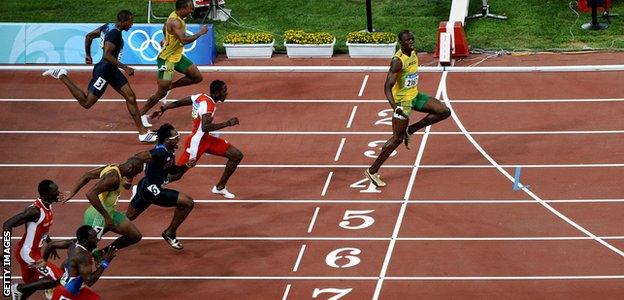
Bolt was a wide-eyed 21-year-old when he won 100m gold in Beijing in 2008
Bolt has changed the game and changed the way we watch it.
There was a time when sprinting was the briefest thrill in town. Snarling on the blocks, narrowed eyes into the camera. Ten seconds of pent-up aggression, a jogged lap of gladiatorial salutation.
Eight years on, it can be hard to remember the surprise of seeing a contender smiling on the blocks, the shock of seeing someone clown around and not look a fool in the serious business that follows.
That was only the build-up. Bolt was never the first from the gun. He was seldom the first at halfway, yet always his rivals would then suddenly start to recede as if he were being pulled along on an invisible bungee cord.
Through the line, you learned not to follow him with your eyes for too long. Let them track back instead to the numbers frozen on the electronic scoreboard just inside the track's curb. Often there would be a moment of bewilderment as you registered times that made no sense. 9.5 something? 19.19?
Unlike any other superstar sprinter, unlike Carl Lewis or Michael Johnson, Bolt would then stretch that short into an epic - stopping for every selfie, holding his iconic pose for every photographer, sometimes an hour to complete a full lap when the first quarter had taken him less than 10 seconds.
In the afternoon before his 200m final on Thursday, wondering how the sport would move on unshackled from his unmatched draw, I looked back on how it was before, rewatching the 200m final from the 2004 Olympics,, external watching the final from four years further back again.
Athens, Shawn Crawford muscling his way through the tape, a man trained by disgraced coach Trevor Graham, an athlete who would end his career with a doping sanction. Close behind him in bronze, Justin Gatlin, another of Graham's dirty dozen, about to be banned for a second time.
Sydney 2000. A failed 400m runner, Kostas Kenteris, coming from obscurity to take a gold no-one had seen coming. Neither would we see him go, slinking into notoriety four years later when staging a motorcycle accident on the eve of his home Olympics to avoid a random drugs test.
This is where sprinting was as Bolt came from the blue, and where it may have stayed had he never arrived.
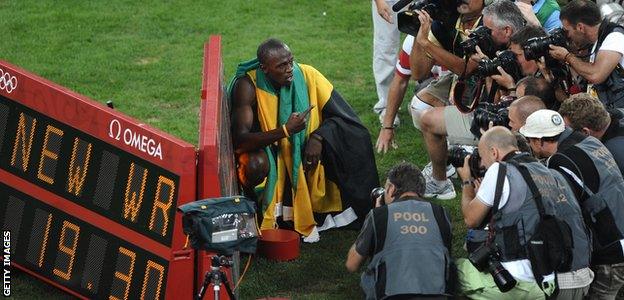
Bolt set a new world record - that he broke in 2009 - when winning the 200m final in 2008
By the time of the Beijing Olympics almost every record-breaking sprinter - Justin Gatlin, Marion Jones, Tim Montgomery - had been busted for drugs. Through London he stood clean as his rivals - Tyson Gay, Asafa Powell - went the same way.
He has not escaped entirely from the spreading stain. Powell was back as part of the victorious Jamaican quartet on Friday night. He passed the baton to Yohan Blake, Bolt's sometime training partner, who has also been sanctioned, external for a doping offence.
He nonetheless stands tall in an era brought low, the only athlete every kid can name, the only superstar who could sell out stadiums on his own.
"Athletics is in such a poor shape that it is unfortunate for him," says Johnson, whose 200m record Bolt took.
"It is difficult to really put into perspective his impact, because the sport has done such a poor job of promoting itself and policing itself that Bolt has stood apart from the sport. Good for him, otherwise I think the sport would have dragged him down."
It can be difficult to recall too that Bolt was not considered a nailed-on favourite in his first Olympic final in Beijing, before the stories of pre-race meals of chicken nuggets and mid-race untied shoelaces had added fresh wonder to the world record that followed.
In the weeks before London 2012 he had been beaten by rivals and doubted by critics. By his own admission he was only 95% fit. Then, at the centrepiece of the biggest sporting occasion on the planet, he ran the second fastest 100m of all time.
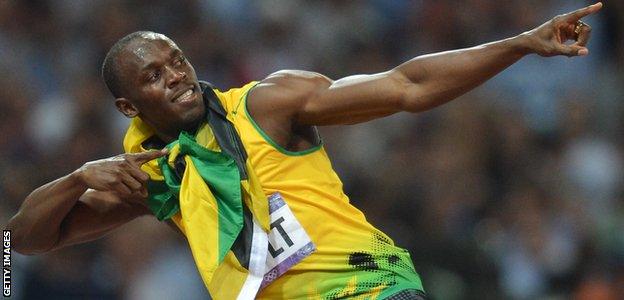
A magnetic personality - there were more than a million requests for tickets for the 100m final in London
That combination of sporting celebrity and sweet speed was why there were one million requests for the 80,000 tickets for that 100m final in Stratford.
It was why he has been paraded round tracks before competitions astride a giant rocket, why a World Championships has been halted so the entire stadium could sing him Happy Birthday, why he has held his trademark 'To Di World' pose, external alongside both a giant anthropomorphic thistle in Scotland and President Obama on the White House lawn.
It is why his Olympic experience includes having a bag-man in the athletes' village to fetch him food, so that he is not mobbed by the weak-kneed stars of other sports as he walks to the canteens, and why when three members of the Swedish women's handball team were photographed in his room in London it became front-page news across the globe.
It is why too he walked out of an Olympic stadium for the final time to the rhythmic cheers of a crowd that didn't want to leave, of a crowd that like so many others across the continents will be telling grandkids for years to come that they saw the best who has ever been do what no man has ever done before.
In a flawed era, Bolt has been flawless. In a yellow vest, unbroken gold. No-one could touch him, from first race to last.
- Published20 August 2016
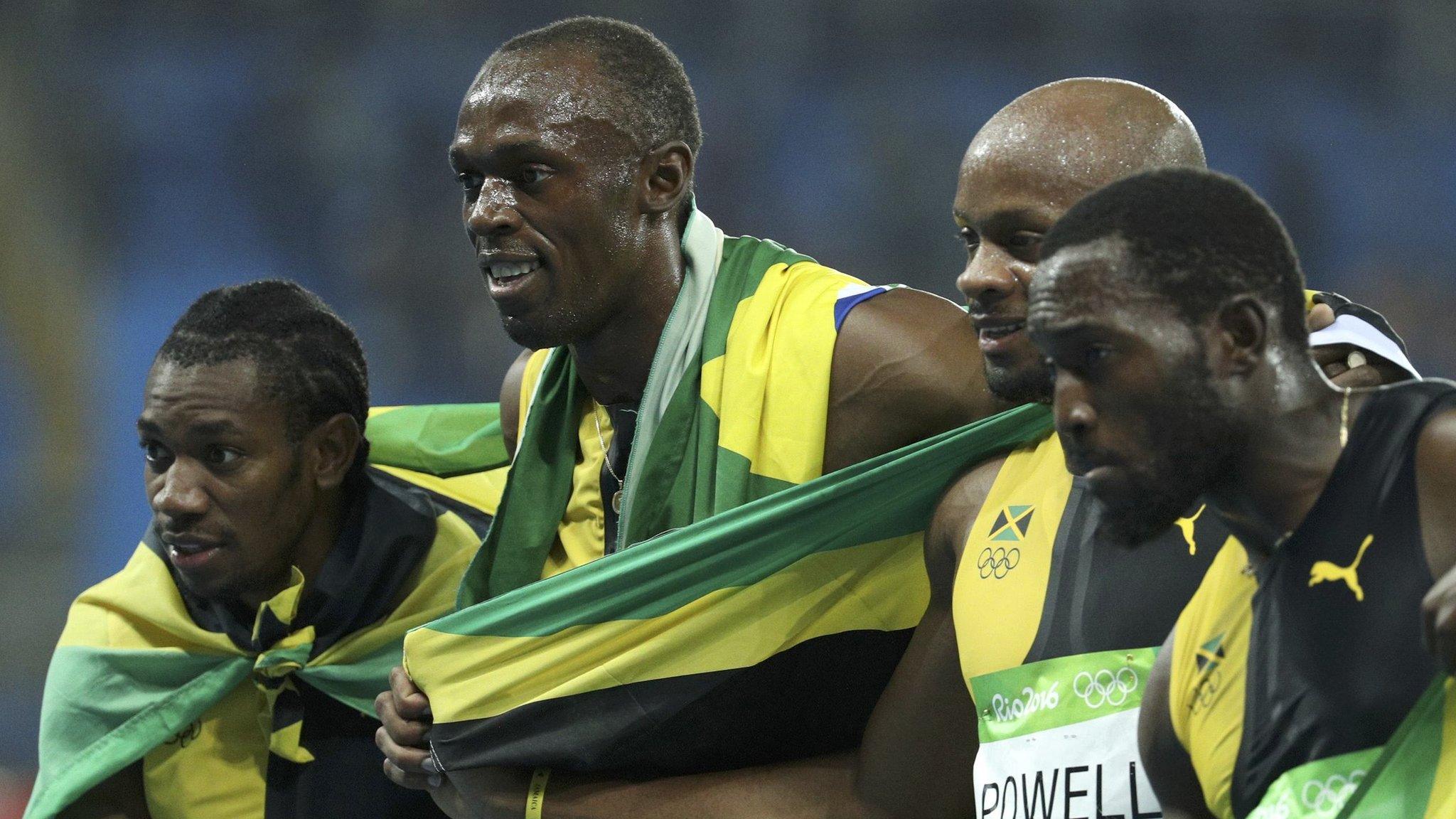
- Published19 August 2016
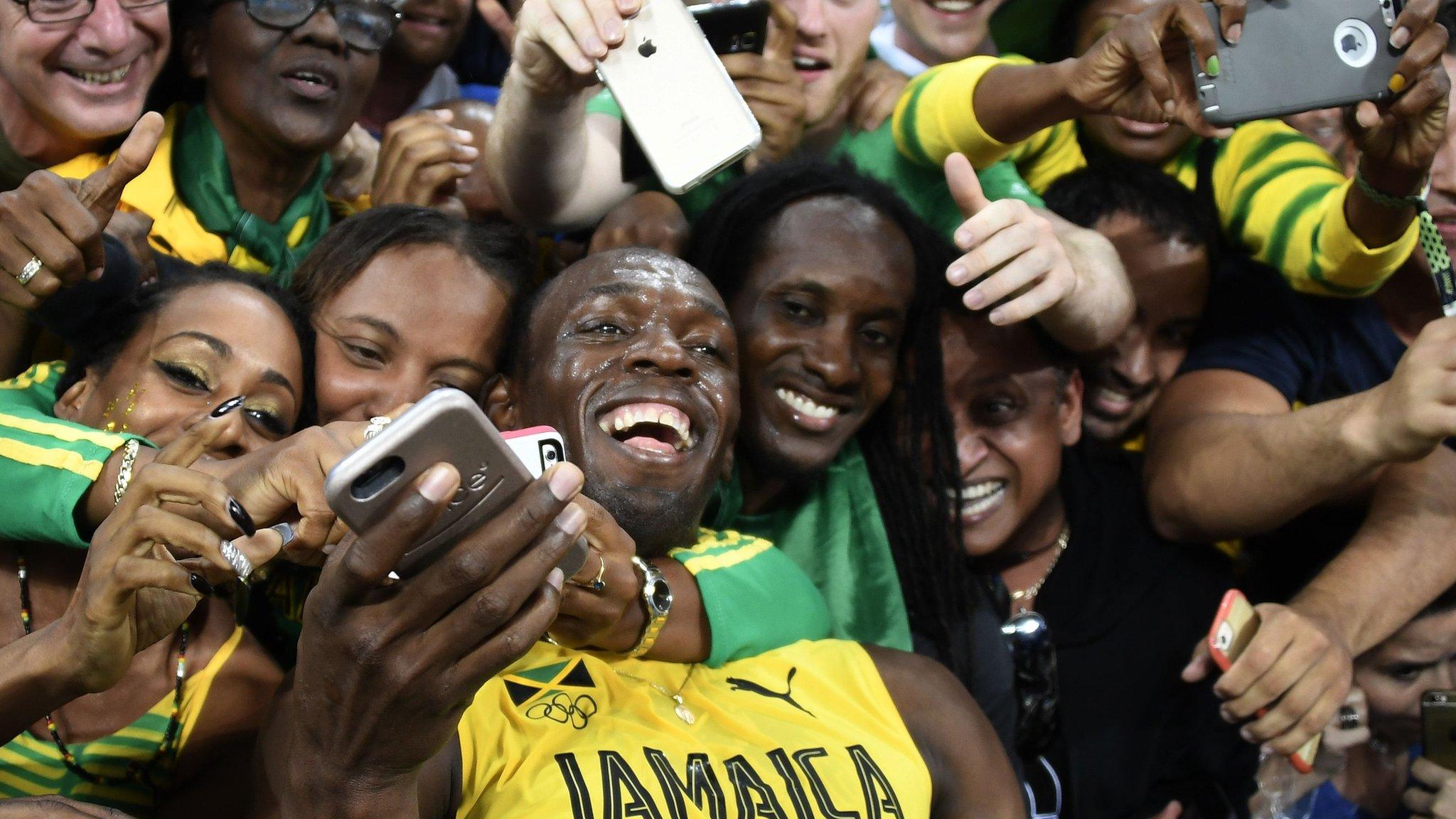
- Published15 August 2016
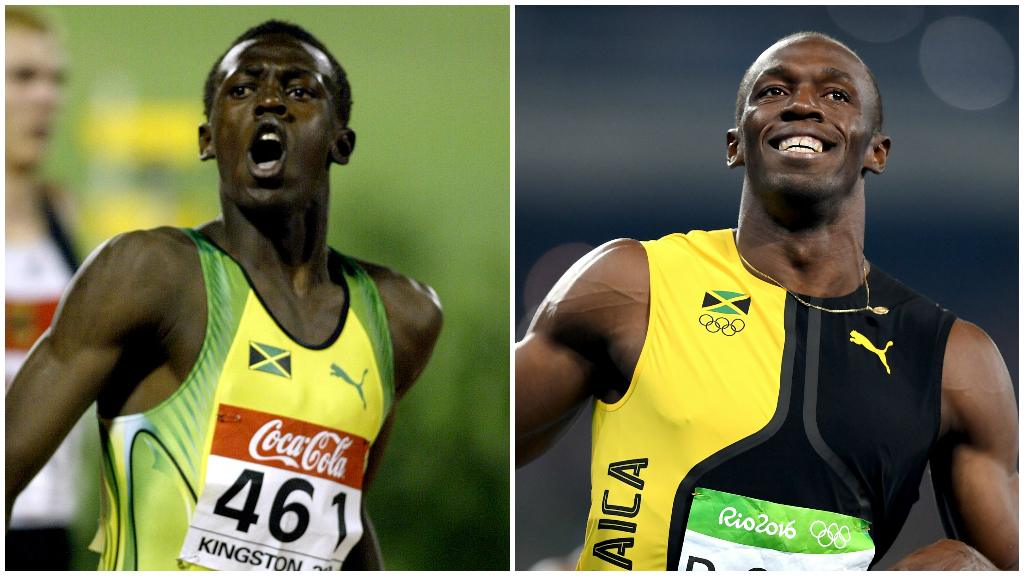
- Published7 August 2016
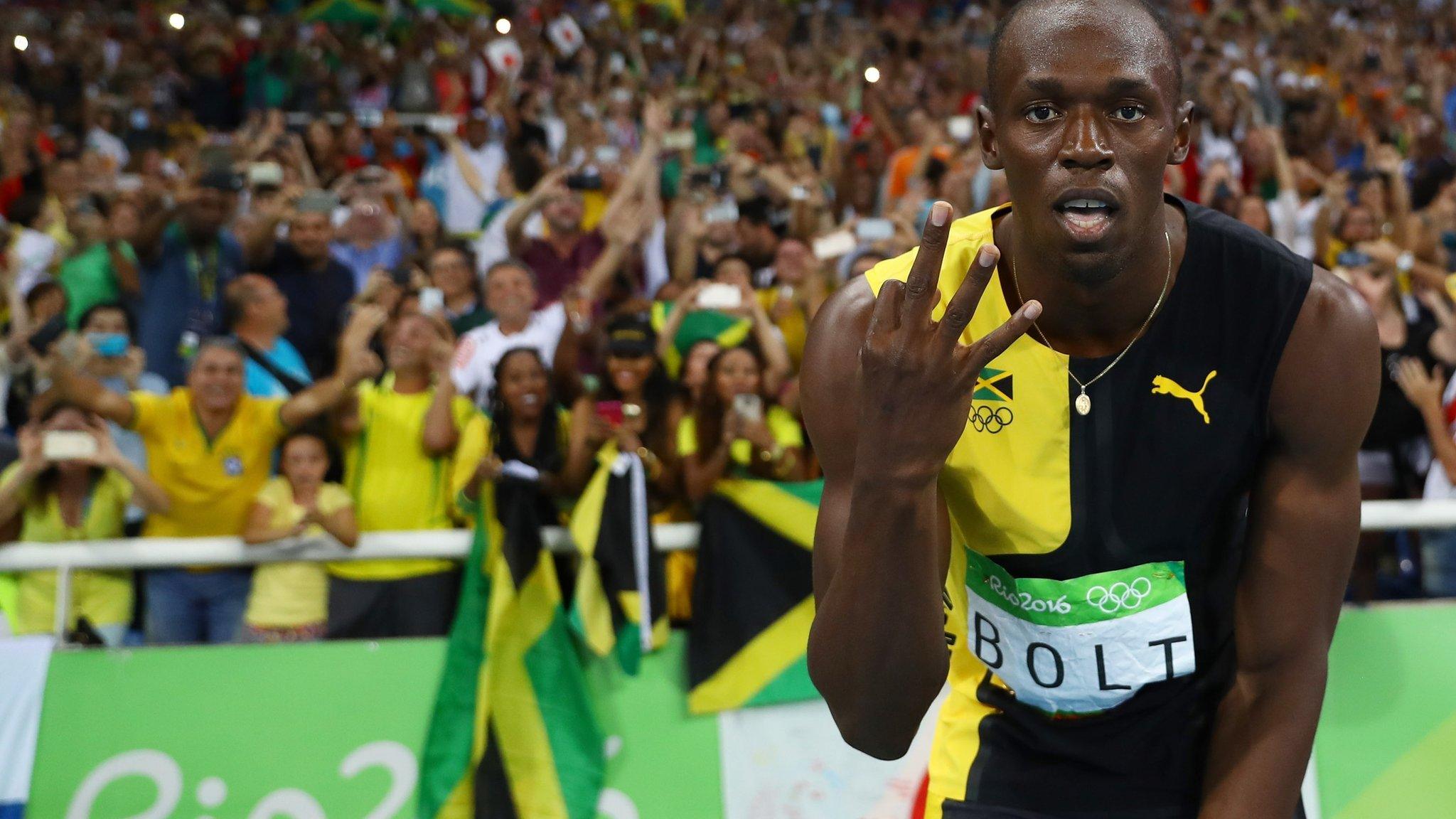
- Published19 August 2016
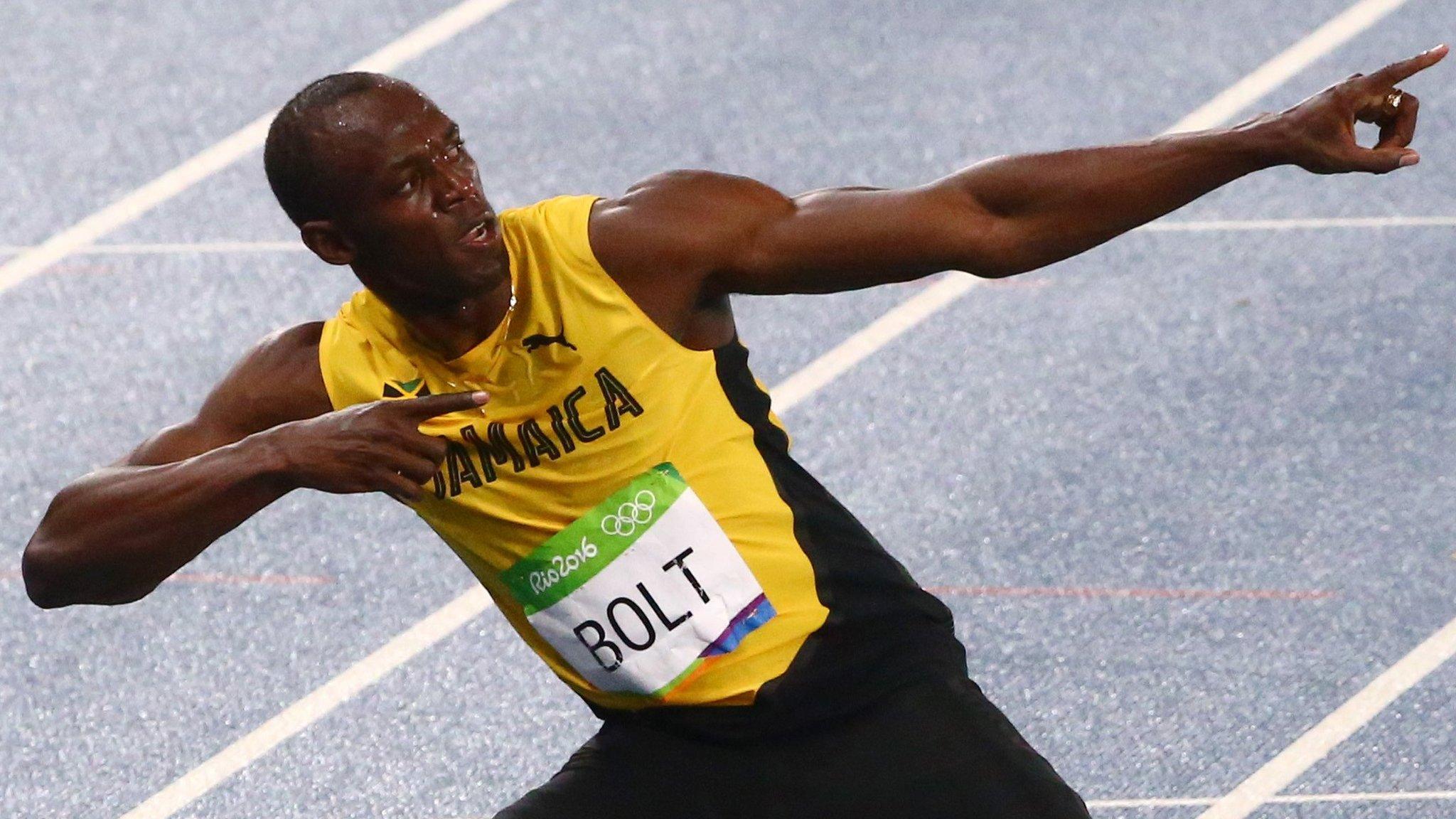
- Published3 August 2016

- Published19 July 2016
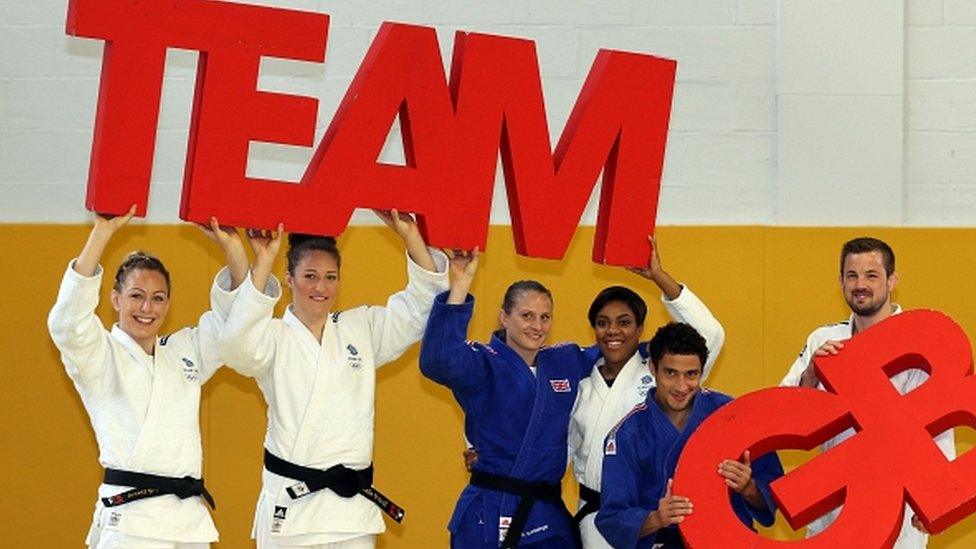
- Published3 August 2016

- Published18 August 2016
